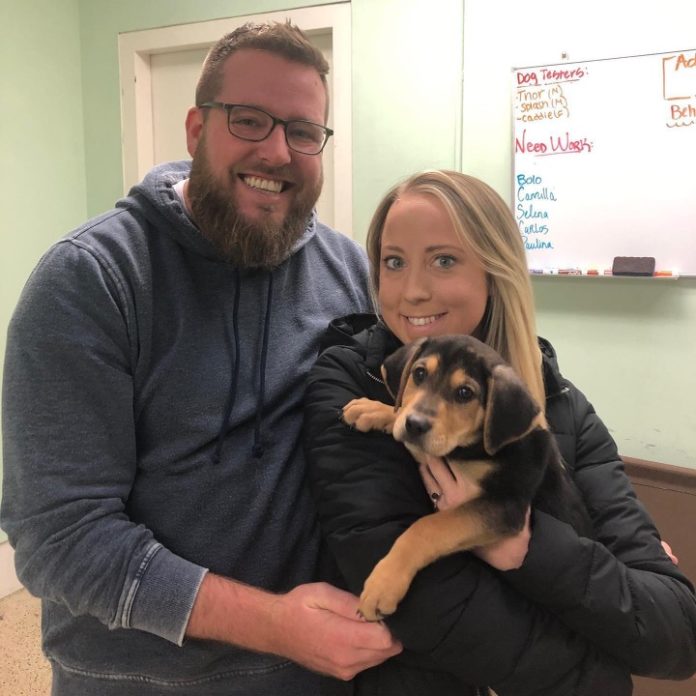For many nurses, working through COVID has been one of their most challenging hurdles. For one Philadelphia nurse, COVID is no longer her biggest challenge. Now, she needs a kidney.
Elaine Wible, a Nazareth Academy High School graduate and current Northeast resident, is on the market for an organ donation. She found out about a year into COVID that her kidney was failing, and she has been on dialysis since January.
“I just started feeling sicker every day, very weak, throwing up every day. I knew something wasn’t right,” Wible said.
At 8 years old, Wible was diagnosed with Crohn’s disease. She was medicated, but according to Wible, the prescription was dosed incorrectly, and her kidney failed.
“I wasn’t aware of what was going on,” Wible said. “This was all before I had turned 16, the damage was already done. There’s nothing you can do, you can’t go back, you can’t fix it, and my life is permanently changed.”
Luckily, Wible was able to get a kidney transplant from a cadaver, or someone who passed away but agreed to donate their organs. This transplant lasted 5 years, but now, she needs a new one.
“It’s pretty common that they don’t last forever, which I think is a misconception. They don’t last forever,” Wible said.
As a result of her health issues, Wible spent a lot of time in the hospital as a child. This, she said, is where she decided to become a nurse.
“Just being in the hospital and stuff, seeing the nurses, they were like the coolest people, and I was like, ‘Oh, I’m definitely going to do that.’ I knew from a very young age that I was going to be a nurse,” Wible said.
Wible went to Holy Family University and has been working at Einstein as a registered nurse for 10 years. She decided to work through COVID, even though she is immunocompromised herself.
“I knew that they needed me,” Wible said. “I wanted mainly to support my friends, my coworkers. I wanted to be there with them and go through it.”
After navigating the uncertainty and stress of the pandemic, Wible now has to face the uncertainty of where and when a new kidney will come. Until she can find a kidney, Wible does dialysis 3 times a week, and works 12-hour nursing shifts to remain full-time.
“The first challenge was working COVID with a transplant, and now this is working with being on dialysis,” Wible said. “I’m going to do it as long as I can, I don’t have to work but I’m choosing to work to support my family and take my mind off of it.”
Finding a kidney is not a quick process. Organs can come from a cadaver or a live person who willingly donates. According to Wible, live donations tend to last longer and function better.
Once on the waiting list, people in need of a kidney are dependent on someone being a match, physically able to donate, and willing to donate.
Wible’s friend, Kayla Schaffner, created a website to spread awareness about her friend’s situation, and educate people on the process of donating a kidney.
“As you can imagine, asking somebody to donate a kidney, or any organ, really, is something that’s super hard,” Schaffner said. “So putting it on Elaine to ask people to go through the process is just something that I could tell she wasn’t comfortable doing.”
Schaffner met Wible through her husband, who is friends with Wible’s fiance, and they became fast friends.
“My hope is not only that she gets this kidney so that she can continue to lead this really great caring sunshine life. Right now this is consuming everything and I want her to be able to move on,” Schaffner said.
The website, elaineneedsakidney.com, describes Elaine’s situation and seeks to educate people on the process of donating a kidney.
“A kidney is not like donating an eyeball or your heart or your liver,” Schaffner said. “The kidney is something you can function without. The process only takes a couple weeks and then you’re back to your old self.”
Schaffner and Wible explained that prospective donors are tested extensively. If there is any risk to the donor, they will not be allowed to donate.
“What I also don’t think people realize is when you talk to a transplant coordinator they are 100% on the donor’s side, so they will actually try to find reasons for you not to donate,” Schaffner said.
Wible said she doesn’t ask Schaffner to do these things for her, but she is thankful.
“I’m always shocked when I hear she did it, but then I’m like, ‘Oh, you know what, I’m kind of glad she did, because I never would have done it for myself,” Wible said.
According to Wible, the average wait for a kidney is about 5 years, and the average survival on dialysis is 5 years, too.
“I just have to keep reminding myself that I’m never gonna get one from a stranger if I keep to myself,” Wible said. “You have to put yourself out there, as uncomfortable as it is. You have to try. Even if it doesn’t work, I can at least say I tried.” ••





